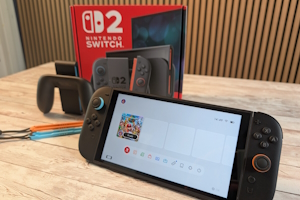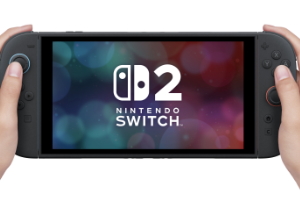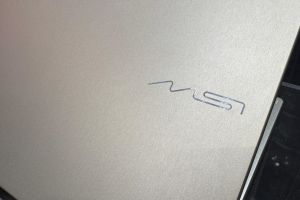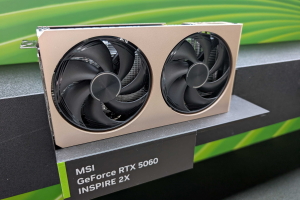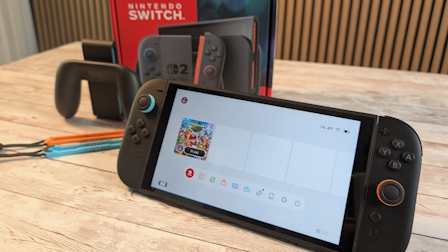The Witcher 2 si candida come miglior rpg del 2011

Le caratteristiche principali del gameplay di The Witcher 2 Assassins of Kings, il nuovo rpg di CD Projekt con grandi velleità. L'articolo include l'intervista a Tomasz Gop, senior producer.
di Jonathan Russo pubblicato il 13 Ottobre 2010 nel canale VideogamesThe Witcher
Interview (English)
Hardware Upgrade: Is TSOOD an acronym? What does it mean?
Tomasz Gop: It¡¦s exactly how you could spell the word "miracle" in Polish. Of course it¡¦s not actually how you write it in Polish (we're luckily aware of what "cud" means in English, thus we refrained from using this name), but it's just a customized spelling allowing everyone to speak Polish! We're in possession of a great knowledge on how to make good RPGs – we’ve put all our magical skills into this engine, you know.
Hardware Upgrade: How does the new technology help telling the story?
Tomasz Gop: By directing and planning for emotions that we see fit for each situation. Most of the tools that TSOOD has are focused around storytelling and utilizing different means for what role-playing has always been about. I'm talking about showing how the world reacts to Geralt. Dialogues feature more interactions than before. Background NPC societies have more depth, feature life of their own and change depending on how the story unfolds, how the world changes and even how the player finished the first Witcher. Of course the technical progress helps too – with three times more details on characters and locations we can depict the world in a more believable manner.
Hardware Upgrade: What are the main features of the graphics engine? Does it support DirectX 11? If so, which benefits do they add?
Tomasz Gop: DX11 is yet to be confirmed, because arguments towards if, how and when we implement it are still being weighted. We’d love to utilize some of the latest tech like tessellation for example – but to pull it out right, we have to make sure we have enough people, time and money. Don’t get me wrong – we’re totally aware that features using latest technological achievements are something we’d potentially be really proud of, but we have to make sure the game will run on middle-end PCs for a start. Then we can move on to more advanced stuff.
Hardware Upgrade: Can you describe the cinematic component of The Witcher 2? How important is it, and what technology did you use to manage facial animations?
Tomasz Gop: We have a dedicated cinematic team this time around (not exactly the case previously), so these guys also have their own tools within TSOOD. It was needed not only due to larger amounts of cutscenes for a less linear game, but also because with the way dialogues work in The Witcher 2, you just need to implement part of them in a cinematic way. At least production and pipeline wise. Whenever we want characters to interact in a specific way, do some tricky camera movement, or diversify a cutscene in any other way, we at least prepare a cutscene-based template for all actions like this that could later on be used within any dialogue. As per facial animations, we’ve got a lot of work stacked up and not really released yet (that’s one of the reasons faces looked dummy-like during GamesCom presentations). We should be ready to show it soon enough.
Hardware Upgrade: Are there ways in which the player can customize his character during the adventure?
Tomasz Gop: Depending on the way player chooses to progress through gameplay (character development and combat), it’s advisable to use specialized parts of clothes, weapons, items and… tools. Because of the fact that we still have a lot of various skills and abilities in The Witcher 2, it seemed like a good idea this time to back it up with a lot of customizable things. Clothes have parts, parts have stats, stats influence your combat, combat depends on how player specialized Geralt, and specialization gives slightly different playing experience. We also have our own ‘Circle of Awesome’… kind of.
Hardware Upgrade: You have introduced many elements as immediate game action. Isn’t there a risk of debasing the soul of a role-playing game like The Witcher?
Tomasz Gop: Many? Immediate? Oh come on… we’ve just spiced things up a bit. The combat is still hardcore, the story is still mature, the choices are still ambiguous. There are new elements that speed things up, or keep things more dynamic – but those are on top of everything we’ve already had. Seriously, if you loved combat in The Witcher, there’s still at least as much depth as previously, and all those new tricks – most of them are not even mandatory. Not to say they’re not cool – I personally always choose to use QTE if I can, that’s just how I like approaching games – the more skill required, the better.
Hardware Upgrade: What will the level of freedom given to the player be like? Can you explain in detail what choices the player can take and what possible consequences may occur?
Tomasz Gop: We’ve gone great lengths in extending the game’s non-linearity, so you can expect story branching and deep changes within the game world based on your actions. Still however, there is a story we want to tell – different in many aspect (depending on branches), but key elements (we call those ‘hubs’) will play a major role everywhere. The story – if you’re wondering about the exploration and open world, that’s also greatly improved. We’ve got no magical barriers right now – we actually encourage players to take various paths throughout what seems to be a well-known location. There are things definitely worth checking out in places definitely not-so-obvious to find. Technically speaking, we’ve added multiple sorts of exploration allowing players to transition between areas smoothly. I’m not only speaking about ascending/descending rock formations, ladders and cascades, but also entering and leaving interiors seamlessly.
Hardware Upgrade: How many weapons are there and how many skills / spells?
Tomasz Gop: There will be lots of weapons to choose from, randomized loot stats, color-based rarity, crafting system, well there’s just a lot. Specific numbers are to be confirmed soon as we still are working on that. Regarding the skill tree – there’s over a hundred ways to spend your well-earned experience points. There’s one more cool thing – we’ve bound the character development with the story, so some quests require special approach, special knowledge, special travel and after some combat you will be able to gain unique abilities.
Hardware Upgrade: You can import your status from the first chapter? What kind of consequences will result in The Witcher 2?
Tomasz Gop: Since The Witcher was also a game based around choices, those choices you’ve made throughout the game will in many ways be reflected in The Witcher 2 if you import your savegame. Not only the world will hold marks and signs of what you had done previously, but also people that you meet might surprise you with how much they know (or ‘have heard’) about your previous actions. They actually might have a solid opinion of their own about you by the time you meet them for the first time. Superstition, sort of…
Hardware Upgrade: Will The Witcher 2 come to consoles?
Tomasz Gop: If not, the consoles will come to The Witcher 2! We’re doing everything we can to make it happen. Remembering our past experience we’d announce something that’s ‘bound to happen’ rather than ‘let’s try’. But what’s most important – whenever we approach doing console versions of our own game, we definitely have to do it in-house. And we DO want to do it.







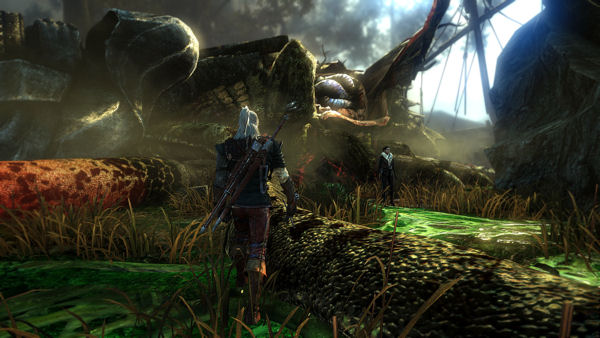
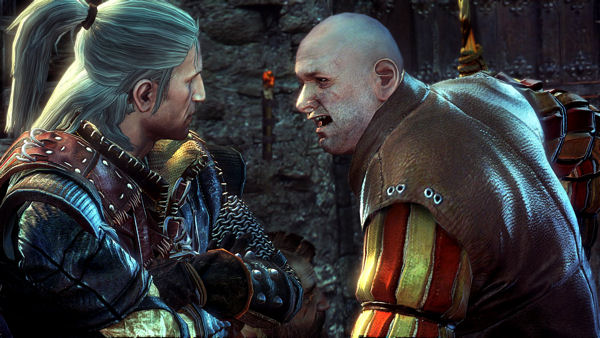
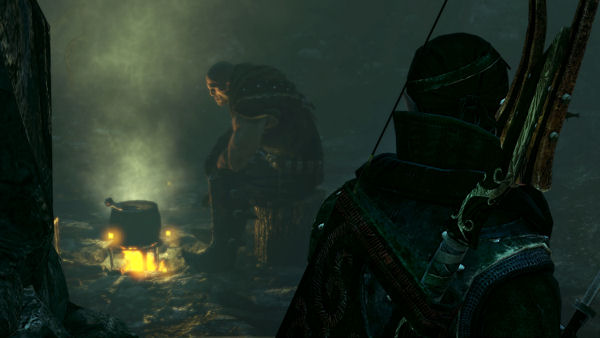
 Recensione REDMAGIC Astra Gaming Tablet: che spettacolo di tablet!
Recensione REDMAGIC Astra Gaming Tablet: che spettacolo di tablet!  Dopo un mese, e 50 foto, cosa abbiamo capito della nuova Nintendo Switch 2
Dopo un mese, e 50 foto, cosa abbiamo capito della nuova Nintendo Switch 2 Gigabyte Aero X16 Copilot+ PC: tanta potenza non solo per l'IA
Gigabyte Aero X16 Copilot+ PC: tanta potenza non solo per l'IA Un'azienda cinese fondata solo un anno fa ha presentato un robot quadrupede che ha battuto Boston Dynamics
Un'azienda cinese fondata solo un anno fa ha presentato un robot quadrupede che ha battuto Boston Dynamics Norma, MSE e DepuChat: l'Italia tra i primi paesi a introdurre l'IA in Parlamento
Norma, MSE e DepuChat: l'Italia tra i primi paesi a introdurre l'IA in Parlamento I Feastables di MrBeast diventano lo snack ufficiale di Formula E
I Feastables di MrBeast diventano lo snack ufficiale di Formula E X, il fact-checking non funziona: oltre il 90% delle Community Notes non viene preso in considerazione
X, il fact-checking non funziona: oltre il 90% delle Community Notes non viene preso in considerazione La rivincita di Polestar, vendite in netta crescita nel Q2 e nel primo semestre: +38% e +51%
La rivincita di Polestar, vendite in netta crescita nel Q2 e nel primo semestre: +38% e +51%  15 milioni di euro per i computer quantistici fotonici europei, con QuiX Quantum
15 milioni di euro per i computer quantistici fotonici europei, con QuiX Quantum Tesla fa un mega sconto di 20.000 dollari in Canada nonostante i dazi, ma c'è il trucco
Tesla fa un mega sconto di 20.000 dollari in Canada nonostante i dazi, ma c'è il trucco Per il terzo anniversario del telescopio spaziale James Webb ecco la colorata immagine della Nebulosa Zampa di Gatto
Per il terzo anniversario del telescopio spaziale James Webb ecco la colorata immagine della Nebulosa Zampa di Gatto Perché continuo a ricevere telefonate dopo aver cambiato fornitore dell'energia elettrica e del gas?
Perché continuo a ricevere telefonate dopo aver cambiato fornitore dell'energia elettrica e del gas? Fujifilm annuncia le versioni infrarossi delle mirrorless GFX100 II e X-H2
Fujifilm annuncia le versioni infrarossi delle mirrorless GFX100 II e X-H2 Secondo i primi test, Grok 4 di Elon Musk ha già superato i rivali
Secondo i primi test, Grok 4 di Elon Musk ha già superato i rivali Vendeva segreti per la produzione di processori alla Russia: arrestato ingegnere nei Paesi Bassi
Vendeva segreti per la produzione di processori alla Russia: arrestato ingegnere nei Paesi Bassi Numeri choc: quest'anno sono cresciuti a ritmi esponenziali i contenuti di abuso su minori generati dall’IA
Numeri choc: quest'anno sono cresciuti a ritmi esponenziali i contenuti di abuso su minori generati dall’IA Addio Intel: RealSense vola da sola con 50 milioni per conquistare la robotica
Addio Intel: RealSense vola da sola con 50 milioni per conquistare la robotica